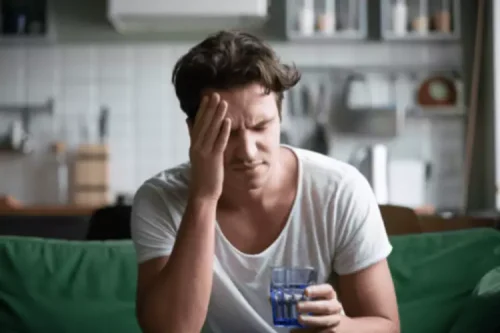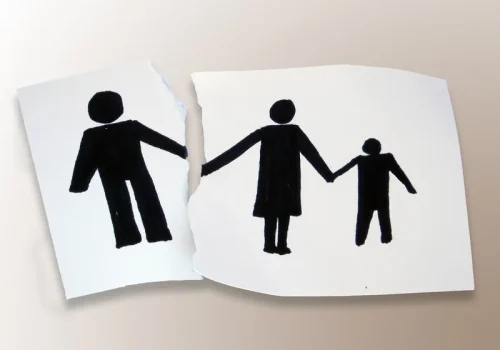Quieting negative thoughts, learning to cope with emotional triggers and practicing self-compassion are among nine key skills outlined by the therapist in a new book. Understanding the available treatment options—from behavioral therapies and medications to mutual-support groups—is the first step. The important thing is to remain engaged in whatever method you choose. Evaluate the coverage in your health insurance plan to determine how much of the costs your insurance will cover and how much you will have to pay.
How Microneedling Treatment Increases Confidence and Produces Vibrant Looking Skin

Talking openly about a lapse or relapse with a care team can help you develop and strengthen your relapse prevention plan and identify how to get back on track with your recovery goals. One such neurotransmitter, dopamine, reinforces the connection between drug use, pleasure, and any external triggers that remind the user of the substance. Over time, these dopamine surges teach the brain to seek the drug or alcohol any time the user encounters a trigger. After a period of poor self-care, someone in recovery will likely experience some of the mental signs of relapse. They may begin to feel discontent with their progress and restless in their disintegrating routine. Without the proper structure and routine, a person is more likely to start thinking about using again.
Other People
Denied users will not or cannot fully acknowledge the extent of their addiction. Denied users invariably make a secret deal with themselves that at some point they will try using again. Important milestones types of relapse triggers such as recovery anniversaries are often seen as reasons to use. Alternatively, once a milestone is reached, individuals feel they have recovered enough that they can determine when and how to use safely.
Mental relapse:
- Implementing ongoing care after the first onset of illness, early identification of prodromal symptoms, and personalized management are also crucial aspects [51].
- Having a plan to get through times when your cravings are triggered will be very helpful in avoiding a relapse.
- It’s possible to go several years without experiencing an MS relapse.
Experts in addiction recovery believe that relapse is a process that occurs somewhat gradually; it can begin weeks or months before picking up a drink or a drug. Moreover, it occurs in identifiable stages, and identifying the stages can help people take action to prevent full-on relapse. Relapse is most likely in the first 90 days after embarking on recovery, but in general it typically happens within the first year.

Old Friends
Mental conditions like anxiety and depression paired with physical pain or discomfort can trigger a relapse for even the most determined person in recovery. Staying open and honest with your doctor during recovery can help prevent relapse. Using non-addictive prescription drug alternatives to treat the withdrawal symptoms is also helpful. This blog explores relapse prevention, strategies for avoiding triggers, and coping mechanisms to manage urges of repeat negative habits.

- The majority of people who decide to end addiction have at least one lapse or relapse during the recovery process.
- If a person is in therapy during emotional relapse, the focus of therapy may pivot towards reinforcing the importance of self-care.
- Or they may believe that they can partake in a controlled way or somehow avoid the negative consequences.
- The majority of patients are aware of the preventive effects of antipsychotic medication on relapse, which is a primary reason for their adherence to medication [53, 54].
This article looks at the signs that depression is returning, potential triggers, and ways to prevent, treat, and cope with this condition. Many people who experience an episode of depression for the first time will remain well. However, depression can return one or more times throughout a person’s life.
They are sometimes reluctant to even mention thoughts of using because they are so embarrassed by them. Many successful treatment plans are specifically tailored to each individual. Therapy is extremely helpful; CBT (cognitive behavioral therapy) is very specifically designed to uncover and challenge the kinds of negative feelings and beliefs that can undermine recovery. By providing the company of others and flesh-and-blood examples of those who have recovered despite relapsing, support groups also help diminish negative self-feelings, which tend to fester in isolation. Among the most important coping skills needed are strategies of distraction that can be quickly engaged when cravings occur. Mindfulness training, for example, can modify the neural mechanisms of craving and open pathways for executive control over them.
Tips for Selecting Treatment
Related Posts
Relapse After Addiction: Causes and Prevention
Quieting negative thoughts, learning to cope with emotional triggers and practicing self-compassion are among nine key skills outlined by the therapist in a new book. Understanding the available treatment options—from...
Sober Living Houses Restoration Recovery Center, Inc
RehabNow.org’s helpline is a private and convenient solution for individuals seeking treatment for addiction or mental illness. More than half a million Massachusetts residents abuse alcohol while more than 1.5 million use...
Review of Maverick House Fresh Seafood Restaurant in Milwaukee, WI
Review of Maverick House aims to support men on their journey to recovery, fostering a supportive environment conducive to lasting positive change. Sometimes, life takes us to a place where change is not just an option – it’s...

